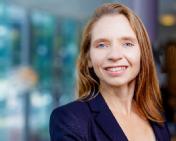Gwen Ottinger

Narrating the History of Community-based Air Monitoring
Gwen Ottinger (Drexel University)
The seminar is co-hosted by the Centre for Interdisciplinary Methodologies and the Sociology Department.
Monday 8th May 2017
14:00-16:00
University of Warwick, Room: S1.50
All are welcome and places are on a first come first seated basis
"Over the past 25 years, communities in close proximity to industrial pollution have gone from having almost no information about local air quality, to having access to a plethora of low-cost tools for documenting their chemical exposures. Next to handful of United States oil refineries, community members are even able to view real-time measurements of air quality from sophisticated fenceline monitoring systems. My research highlights the pivotal role in this transformation played by a small group of community activists, organizers, and scientists in the San Francisco Bay area. It also demonstrates the on-going difficulty of translating sensor data into meaningful, systemic change in environmental conditions for “frontline communities.”
In this talk, I describe the variety of methods that I have used since 2001 to study air monitoring activism, including oral history interviews, archival research, participant-observation, and direct participation in the work of interpreting air quality data. I further discuss the challenges of finding storylines and theoretical frameworks that can weave together these disparate data into a coherent account of the historical significance of early, activist-driven innovations in air quality monitoring."
Important Information
In preparations for this seminar, we ask you to read the following two pieces: "Drowning in Data" (with Rachel Zurer), and "Citizen Engineers at the Fenceline”
Speaker Bio
Gwen Ottinger is Associate Professor in the Department of Politics and the Center for Science, Technology, and Society at Drexel University, where she directs the Fair Tech Collective, a research group dedicated to using social science theory and methods to inform the development of technology that fosters environmental justice. She is author of Refining Expertise: How Responsible Engineers Subvert Environmental Justice Challenges, which was awarded the 2015 Rachel Carson Prize by the Society for Social Studies of Science.
